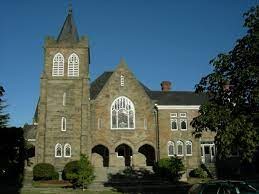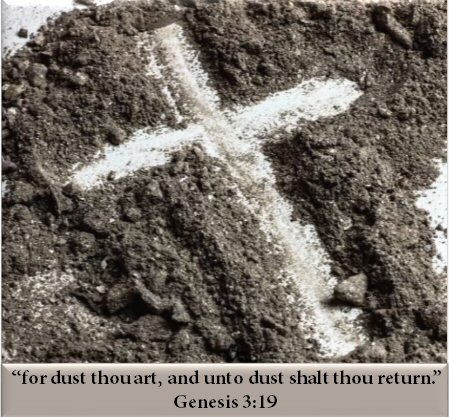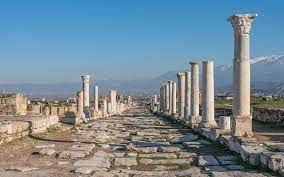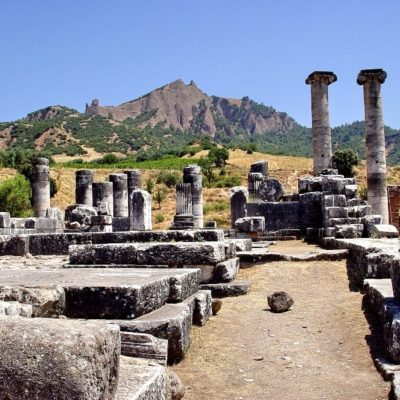Free Methodists Church of North America

The Free Methodist Church of North America is more conservative among the larger bodies of American Methodism. They are conservative in doctrine and their standards of Christian practices. They follow the Wesleyan standards of the church and call for the return to primitive Wesleyan teaching.
They can trace their heritage back to Methodism. The heritage of doctrine of the Free Methodists Church of North America is Arminian Wesleyan tradition. They believe they prepare the way for evangelization of the world. They seek to cooperate with other branches of the church of Christ in expansion of the kingdom of Christ. The Free Methodists Church of North America was part of the Methodist movement. They are a group of related denominations of Protestant Christians. They originally appealed to poor farmers, workers, and slaves. Theologically, the Free Methodists are Arminian.
The founder of the Methodist Church was John Wesley. The influence of John Wesley and his teachings, churches and annual conferences spread across America.
The Free Methodist Church came into being in New York and Illinois in 1860. On August 23, 1860, Methodist laymen and evangelical Methodist pastors joined together and held some conventions to form The Free Methodists denomination.
One of the issues that were important to the Free Methodists was the issue of slavery in America. The Free Methodist Church opposed slavery. The Methodist church did not take a stand on the issue.
History
John Wesley and his younger brother Charles started the Methodist movement within the Church of England in the 18th century. The center of Methodism was with the focus on Bible studies, and a systematic method of living a Christian life using the Scriptures as the example.
The early Methodists had a lack of interest in the Church of England. They did open air preaching traveling from town to town. The established churches were afraid of new doctrines being spread by the Methodists. The new doctrine stating it was necessary for salvation to experience a new birth, justification by faith and the constant indwelling by the Holy Spirit upon all believers’ soul was very fearsome for the established churches.
George Whitefield was another English Methodist preacher who played an important role in the religious movement among the American colonials in the 1730 and 1740. He traveled across the colonies preaching as a circuit rider. Circuit riders were laymen who traveled by horseback to preach the gospel and established churches across the Americas. This style of preaching breathed new life into the religion in early America. Because of this style of preaching the people became involved in their religion intellectually listening. Bible studies began starting up in homes. This was considered the First Great Awakening.
The Second Great Awakening was a series of revivals that happened nationwide. The new awakening in religious interest inspired a progression in social activism in America. Methodism grew rapidly and the Holiness movement began.
The disputes over slavery in 1800 brought many difficulties for the church leaders. The northern church leaders were fearful of a split with the south, yet they were reluctant to take any kind of a stand.
The Free Methodist and the Wesleyan Methodist Churches were loyal abolitionists. They were active in the Underground Railroad and helped to free the slaves.
A large split occurred in 1845 Louisville, when the churches of the slaveholding states left the Methodist Episcopal Church and formed The Methodist Episcopal Church, South. The northern and southern church branches were brought back together in 1939, after slavery was no longer an issue.
The Methodist Protestant Church initially joined with them, however, those Southerners who were conservative in their theology and strongly segregationist in their nature opposed the merger and in 1940 they formed the Southern Methodist Church.
The Third Great Awakening was from 1858 to 1908 with massive growth in the Methodist membership resulting. The Methodists were involved in the Missionary Awakening and the Social Gospel Movement. This awakening began in the cities in 1858, however, the movement was interrupted in the North by the Civil War, while the South was motivated at the same time with the revival spirit.
Belief
The Free Methodist Church of North America holds strictly to the Wesleyan teachings. They stress the virgin birth and deity of Jesus Christ, His atonement and Resurrection.
No one may be received into the membership of The Free Methodist church of North America unless they have experienced confession and forgiveness of sin. All members seek the experience of the entire sanctification. They believe in a strict adherence to the general rules of Methodism. They forbid their members to be a part of any secret society.
The Free Methodist Church of North America believe the Bible is the inspired, authoritative Word of God and is the basis of faith for all Free Methodists. They live their lives according to the teachings in the Bible.
The Free Methodist Church of North America believe they must experience a spiritual birth through faith in Jesus Christ. They believe this conversion is a life changing miracle of spiritual birth and makes believer a new creation. It is that personal relationship with Jesus Christ and their obedient walk with Jesus Christ which characterizes them as Free Methodist Christians.
The Free Methodist Church of North America believes they should seek to be filled with the Holy Spirit to demonstrate the fruit of the Spirit and live lives that are disciplined according to the Scriptures. The Bible speaks of sanctification which they interpret to be set apart and cleansed. They believe they are set apart unto Christ and cleansed, then filled by the Holy Spirit. They further believe this is a way of life that is taught in the Bible.
The Free Methodist Church of North America believe the church is created by God and is the people of God. They believe Jesus Christ is Lord and Head of the church, and the Holy Spirit is the life and the power of the church. They believe the church is divine and human, heavenly and earthly and exists to fulfill the purposes of God in Christ. They believe Christ loved the church and He gave Himself for the church so it should be holy and without blemish.
The Free Methodist Church of North America is a church of fellowship among the redeemed and the redeeming, preaching the Word of God and administering the sacraments according to the instruction of Jesus Christ. Their purpose is to be the representative of what the church of Jesus Christ should be on earth. They require specific commitment regarding the faith and the life of its members by requiring their members to seek to honor Christ and to obey the written Word of God.
The Free Methodist Church of North America believe the Holy Sacraments commanded by Jesus Christ are water baptism and the Lord’s Supper and a means of grace through faith. They believe God works through the Holy Sacraments within believers to quicken, strengthen and confirm the believer’s faith.
The Free Methodist Church of North America believe water baptism is commanded by Jesus Christ to signify acceptance of the benefits of the atonement of Jesus Christ. They believe Baptism is to be administered to believers, as declaration of their faith in Jesus Christ as Savior. They believe Baptism is a symbol of the new covenant of grace. They believe infants may be baptized since they are recognized as being included in the atonement. The parents or guardians must assure proper Christian training for the infant since they are not able to affirm the vows for themselves.
The Free Methodist Church of North America believe the Lord’s Supper is a sacrament of redemption by the death of Jesus Christ. They believe the bread, which is broken, is the partaking of the body of Christ; equally they believe the cup of blessing is a partaking of the blood of Christ. They also believe the Lord’s Supper is a sign of the love and unity that Christians have among them. They believe it is part of the promise of Christ and He is really present in the Sacrament. They believe the body of Christ is given, taken and eaten in a Heavenly and spiritual manner. They believe there is no change in the element and are not literally the body and blood of Christ. They do not believe the elements of the Lord’s Supper should ever be considered an object of worship. They believe the body and blood of Christ is received and eaten in faith.
The Free Methodist Church of North America believe congregants should worship with their heart to glorify God and receive biblical instruction. They also believe they are to be a representative of Jesus Christ in their daily living. They believe they should be an example in the way they live and in sharing the Gospel with others. They take serious the command of the Great Commission taught by Jesus Christ.
The Free Methodist Church of North America believe they are to make known the wholeness of the call of God through forgiveness and holiness in Jesus Christ to all people everywhere. They believe they are to invite all who respond in faith into membership of the church.
Cite Article Source
MLA Style Citation:
Holstein, Joanne “Free Methodists Church of North America:.” Becker Bible Studies Library Jan 2006.<https://guidedbiblestudies.com/?p=2701,>.
APA Style Citation:
Holstein, Joanne (2006, January) “Free Methodists Church of North America:.” Becker Bible Studies Library. Retrieved from https://guidedbiblestudies.com/?p=2701,.
Chicago Style Citation:
Holstein, Joanne (2006) “Free Methodists Church of North America:.” Becker Bible Studies Library (January), https://guidedbiblestudies.com/?p=2701, (accessed).


